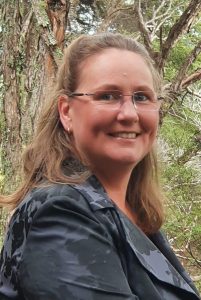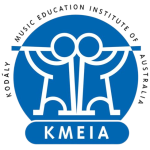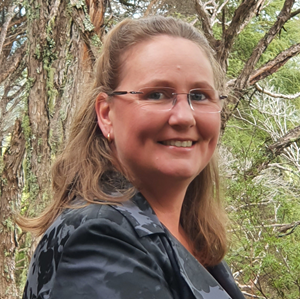 Megan Flint (M.Mus.(Hons), PGDip Ed., B.Ed., Dip. Tchg., ATCL(Voice), AKC-Secondary)
Megan Flint (M.Mus.(Hons), PGDip Ed., B.Ed., Dip. Tchg., ATCL(Voice), AKC-Secondary)
Megan has a background in both education and music, having worked as a general classroom teacher and deputy principal, a choral specialist across Years 1-13, a music specialist in the primary sector and a music education consultant.
With a master’s degree in choral conducting, Megan has a particular passion for working with treble choirs. She is a co-author of “Hear Our Voices”, a New Zealand Choral Federation resource for leaders of children’s choirs. A past member of the New Zealand Youth Choir, Megan currently sings with Voices New Zealand.
Megan undertook her training in Kodály-inspired music education through The Cuskelly College of Music, completing her AKC in 2017. In addition to coordinating the activities of Kodály Aotearoa, Megan is active within Music Education New Zealand Aotearoa (MENZA) and the Association of Choral Directors (ACD) as a board member, and the New Zealand Choral Federation (NZCF) as a singing leader and conducting mentor.
Currently, Megan is a full-time doctoral candidate in the School of Music-The University of Auckland, exploring the beliefs and understandings that primary school teachers in Aotearoa New Zealand hold regarding music in education.
Day 1
| Time | Title |
|---|---|
| Session 5: 15.00 | Research: Music in education: Beliefs and Understandings of Primary School Teachers in Aotearoa New Zealand |
| While many of the attendees at this conference will likely be music specialists, many schools across both New Zealand and Australia do not have access to specialised music staff. In these contexts, the teaching of music falls to the generalist classroom teacher. Research literature internationally indicates that where the teaching of music is the responsibility of the generalist primary school teacher, many teachers struggle. Certainly, music is not consistently taught in English-medium state and integrated primary schools across Aotearoa New Zealand. My doctoral research is investigating the beliefs and understandings that primary school teachers hold about music in education and how these impact their reported practice. This study seeks to investigate a) what primary school teachers believe about themselves as music makers and music teachers; b) how they understand music as a curriculum subject; c) the place of music within their own lives and d) how these things interact to influence their classroom practice in music. I have gathered the voices of those who consider themselves musicians and those who don’t; those who teach music in their classrooms and those who don’t. In this presentation, I will share the preliminary data analysis from interviews with generalist primary school teachers. | |
Day 3
| Time | Title |
|---|---|
| Session 4: 14.00 | He Hononga – Making Connections |
| The New Zealand Curriculum requires educators to give effect to The Treaty of Waitangi through both programmes and pedagogy. This means ensuring that all curriculum programmes create space for matauranga Māori (Māori knowledge) and tikanga Māori (Māori ways of doing and being). As tangata tiriti, a non-Maori partner to the Treaty, committed to upholding the spirit, values and promises of our nation’s founding document, what does this mean for me in the music classroom? In this interactive workshop, I share examples from my teaching practice that demonstrate how I am working to weave mātauranga Māori into my Kodály-inspired primary music programme. | |


